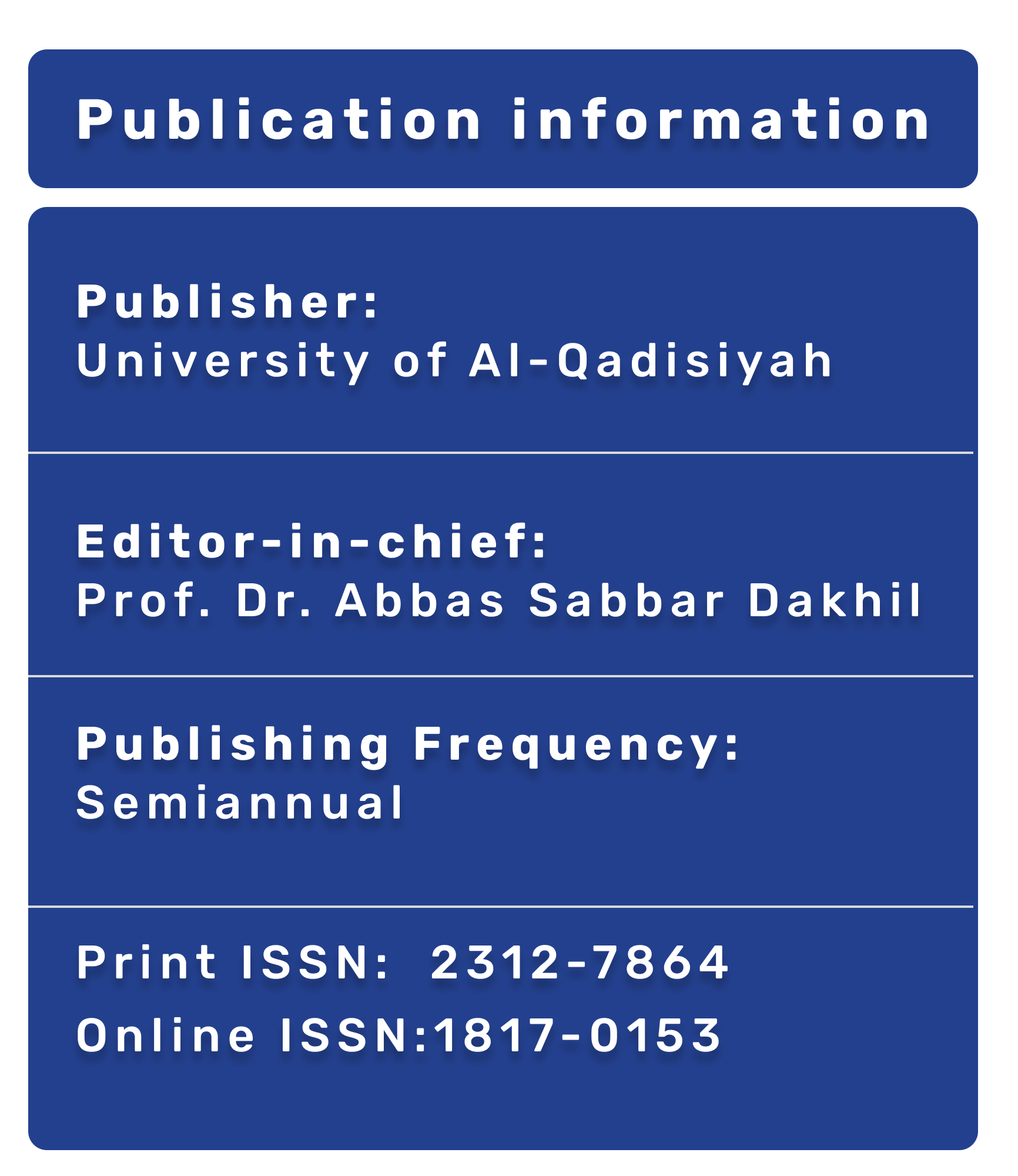Most read articles by the same author(s)
- Hummady A. Al-Hilaly, Aalan H. Al-Zamili, Sarah F. Al-Hamzawi, Immunological Status of Hepatitis vaccin among B-Thalassemia major patients in Diwaniya , AL-QADISIYAH MEDICAL JOURNAL : Vol. 11 No. 19 (2015)
- Hummady A. Al-Hilaly, Osama T. Al-Obaidi, Abdul razaq Abdullah Tahir, A Study of Human Leukocyte Antigens-G (HLA-G), cANCA and pANCA in Inflammatory Bowel Diseases Patients , AL-QADISIYAH MEDICAL JOURNAL : Vol. 9 No. 15 (2013)
- Hummady A. AL-Hilaly, Khalida M. AL-Mousawy, Jassem AL-Khafaji, Nawal AL-Khalidy, The Implications of HLA Phenotypes in Inflammatory Bowel Disease , AL-QADISIYAH MEDICAL JOURNAL : Vol. 4 No. 6 (2008)
- Maani N. Al-Shimmery, Hummady A. Al-Hilaly, Aqeel Abbas AI-khafaji, Seroprevalence of cytomegalovirus and toxoplasmosis in cases of miscarriages women in Al-Diwaniyah province , AL-QADISIYAH MEDICAL JOURNAL : Vol. 7 No. 11 (2011)
- Hummady A. AL-Hilaly, Rahi Rahi K. AL-Yassiry, Allawi J. Hassan, A study of Antibacterial Resistance Associated with Otitis Media Patients in Al-Diwaniyah Teaching Hospital , AL-QADISIYAH MEDICAL JOURNAL : Vol. 7 No. 11 (2011)








